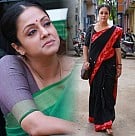PHOTOS & STILLS - GALLERY
VISITOR COLUMN

Mani Ratnam and his love trilogy
By Aswath karthikeyanBehindwoods.com isn't responsible for the views expressed by the visitor in this column. The visitor claims that this column is his/her own. If the column infringes any copyrights that you hold, please email us at columns@behindwoods.com.
How many will argue if I say that O Kadhal Kanmani with Mouna Ragam and Alaipayuthey forms the best love trilogy in the Indian film industry. With many fellow admirers, I know this as a matter of fact than my personal opinion. The trilogy from India’s finest director – Mani Ratnam is so enthralling and consistent though trilogy is spaced between 1986 (Mouna Ragam) and 2015 (Oh Kadhal Kanmani).
Every film has a simple plot that reflects the generation gap between children and traditional parents spun around spellbinding love story. Mani Ratnam has his ears on the ground and that helps him to understand the pulse of younger generation like no other director. When I watched O Kadhal Kanmani I could resonate with most of what Aadhi and Tara spoke about. It was more like Mani Ratnam overheard my mind voice about marriage-relationships-career-bikes-thrill. So what do you do when someday somebody tells you what exactly you are thinking? We tend to marvel at his/her ability to bring a voice to our thought process and tend to think how on earth they managed to do that.
With same inquisitiveness I went back to watch the trilogy again and found so much striking similarities between them and in sync with the trend in the society. In all three movies, the story revolves around the independent – breaking the stereo type female character that falls in love with a guy creating a tussle with their traditional family. Through the scuffle, the female character finds herself and also helps her family to become more progressive and accommodative. No movies in the trilogy take sides nor preach about what is good or bad. It acts more like a society’s mirror and gives an opportunity to judge it by ourselves.
Director’s consistency goes to the extent of establishing a pattern in the character names. Fusion of a trendy first name with a traditional last name from the energetic free spirited Divya Chandramouli in Mouna Ragam, ambitious Shakti Selvaraj in Alaipayuthey and the creative Tara Kalingarayan, to their adventures in relationship and marriage has always been ahead of its time. Chandra Kumar (Mouna Ragam) had an MBA degree which was a dream for every youngster then and when dotcom boom was happening in India, in Karthik (Alaipayuthey), we had a young software engineering graduate trying out his luck in his start up whereas now a more innovative and independent Game designer Aadhi (Ok Kanmani) is what our generation can relate to.
Divya and Shakti fall in love and then have their hearts broken, or at least almost, and they discover themselves during this phase and again fall in love as they believe love is what binds people together. But O Kadhal Kanmani starts with lead pair agreeing on the lust-love-marriage-fight-children-fight cycle in their first meeting and so eventually tries to live a detached lustful life. In the process they also discover that love is bliss and lust is temporary.
In all three movies Mani Ratnam has two love tracks and he uses them wisely to feed one another. Divya -Manohar, Poorni-Raghu, Bhavani-Ganapathy feeds for the development of their respective storyline in a positive way. The youthfulness and transition of Mani Ratnam can be interpreted from the way he has handled the marriage scenes in all three movies.
In Mouna Ragam we had a traditional arrange marriage with all the family members participating in it, Alaipayuthe had a traditional wedding in temple but only with friends by their side – it was time when friends meant more than the family. Now in O Kadhal Kanmani we have semi traditional fusion wedding happening in simple room decorated with only a handful of people gathered to drink and dance over wine.
If people argue that Mani spoils a generation with his transformational idea on love and relationship then I think it’s time for them to listen to their children. Yes it is true that when Alaipayuthey happened all youngsters wanted to break away the shackles of arrange marriages. When most other Tamil movies of 90s had a climax fight sequence where the hero is caught by heroines brothers when they elope, in comes Mani with Alaipayuthey where the movie starts off with hero looking for his wife with whom he eloped very recently. Alaipayuthe beautifully summarizes the difficulties that a couple undergoes when they decided to elope. Mani shows what is happening in society but with a transformational solution for the problem. Sadly we blame him for screening the problem and fail to understand the solution that he suggests.
If you think O Kadhal Kanmani is a rip off from western culture then I can’t agree more when Aadhi and Tara discuss on lust-love-marriage-fight-children-fight cycle, difficulty in choosing between career and love, to the climax where Aadhi says he can do what Ganapathy does for Bhavani. Sometime we have to agree that we are a generation who wants both the extremes. Lust but no love, to love yet to be detached. Our society is impending at this danger if not now at least in the near future. True to his style Mani delivers an answer to this problem through Bhavani-Ganapathy. Thinking of O Kanmani as a movie only on lust and live in relationships, then you should listen to Leela Samson (Bhavani) calling Prakash Raj (Ganapathy) as "Ganapthy". It makes me wonder how a simple name can have so much love and affection in it. May be that is the love that Ganapathy and Bhavani share. The movie is very open and has a beautiful mentor couple in Ganapathy-Bhavani. They don't preach you on what is love but rather they live through the movie to show how to love.
Through this love trilogy Mani has given an historic account of three generation’s love which would live on for generations, like the Picasso and Van Gough, at least in our heart for he has created an epic every time he took up celluloid. If Mani was criticized and written off after “Kadal” it is not surprising because we are the same society that defeated Kamaraj in state election yet worship our corrupt political leaders. Men fall but legends fall and raise higher than before. After all, all men are mortals!!!
Aswath karthikeyan
achukarthik03@gmail.com
achukarthik03@gmail.com
Want to publish your column too?
Please send your column to columns@behindwoods.com.
Please send your column to columns@behindwoods.com.
FACEBOOK COMMENTS
OTHER VISITOR COLUMNS
Tags : OK Kanmani - visitor column
ABOUT THIS PAGE
This page has information about MANI RATNAM AND HIS LOVE TRILOGY, OK Kanmani - visitor column.










